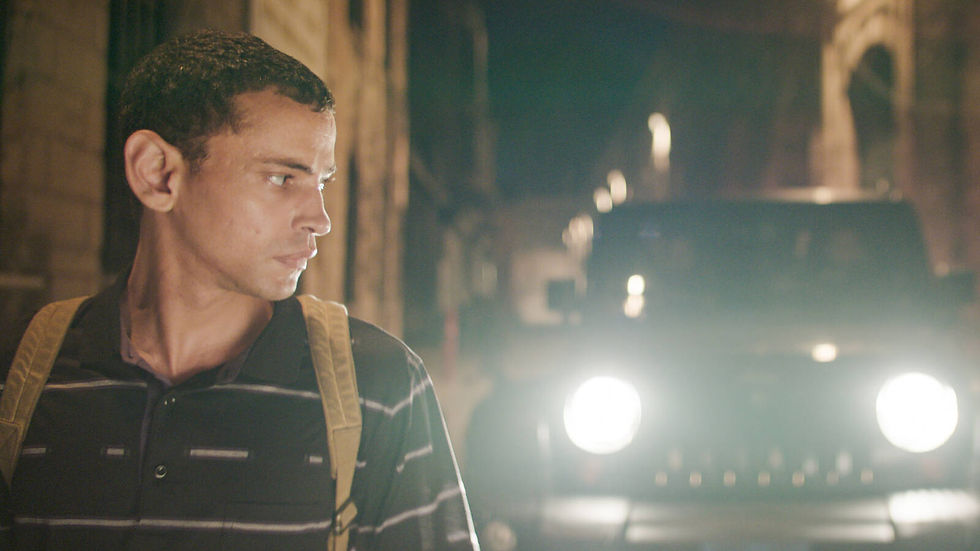Putting Power Dynamics into Check in 'Cairo Conspiracy'
- Pedro Pires
- Apr 3, 2023
- 4 min read
Updated: Apr 4, 2023
There are certain films that we are able to consume and extract everything from what they want to tell us by the moment it ends. There are others that may require us to expand and read between the lines. Cairo Conspiracy – previously called “Boy From Heaven" – a much more suitable title, in my opinion – is a political and religious thriller with some very clear messages, but it also leaves its viewers with other ambiguous concepts to reflect upon.

The story is simple and seemingly contained: an Egyptian boy, Adam (Tawfeek Barhom), receives a letter that will change his life. He has been accepted at the prestigious Al-Azhar University in Cairo. As soon as he arrives, the Grand Imam of al-Azhar unexpectedly dies and a power struggle to replace him begins.
For someone with little knowledge of the culture in question and what this position actually represents – believe me, this figure means much more than a mere college dean in the U.S. – it may seem strange why this is such a coveted place. Why do some people kill? Why do some people give their lives? Why is this such an important position? The film will, eventually, tell us why.
I confess that when it ended, I had to research the topic a bit more. However, the film does a good job of showing the importance of such intellectual symbols, involving various religious fabrics – some more dangerous than others – and the government itself. So, where does Adam fit in? Well, Adam, who until then was little more than "the fisherman's son," finds himself involuntarily at the center of these intrigues and conspiracies.

Tawfeek Barhom – whom I did not know before – gives a powerful performance as Adam. He is a young man who still doesn’t quite know himself but has little time to do so. He doesn't always do the right thing. He doesn't always react properly. He doesn't always find it easy to express what he feels. He is a confused teenager, like any teenager, but he cannot afford to remain in that state for too long. In these circumstances, he is forced to become a man. Right now.
Man. If there's one thing that this movie doesn't lack, it's men. It's rare to see a woman in this toxic and patriarchal world. When any attention is given to a woman, it's to expose the way she's treated by society and those more powerful than her. It's to show us that she should remain without opinion, without identity, submissive and obedient to what life – men – enable her to do. I may be expending a lot of words on something that isn't the central theme of this film, but I feel that Tarik Saleh's choice is intentional. Even when he shows us certain family environments of characters who should be dear to us, the writer-director gives us clues about what he thinks about the concept of family and gender roles within this society.

Through this, we can also extract many of this film’s central themes. It documents a society that is merged with its religiosity. Everyone's roles converge with Islam, whether we're talking about a more conservative or liberal practice of it. And when they diverge in the customs and teachings passed down by the written and spoken word, it invariably serves to expose all the hypocrisy of a system that only survives because it enables a few to dominate and control everything and everyone. When Saleh shows us daily hygienic rituals specific to religion, he shows us people cleaning themselves of all their sins, all their anxieties, and all their filth. The filth that leaves marks on the outside as well as that which leaves marks on the inside.
When it comes to power dynamics, Cairo Conspiracy is fascinating. There are certain individuals who make it their business to know a lot about Adam's life. It is even more interesting when the film gradually reveals the main players of this game and who is serving who. There are pawns for all tastes; this is particularly visible in the figure of the investigator we follow more closely – Ibrahim, full of nuances as portrayed by the established actor Fares Fares – who has his own pawns in some respect, but is also being used by someone else.

There are also other many small players who are part of a bigger scheme. Those who should not even be there, such as the students of the university who, on one side or the other of the board, have been used in power and backstage wars, being manipulated for personal purposes. This is also a way of keeping society the way it is, indoctrinating – perhaps grooming is the right word – from an early age, reaching those most susceptible and feeding the system itself.
Cairo Conspiracy may seem, at times, to be a cold film. It is a film with no completely right sides or characters doing what we are used to seeing in our Hollywood heroes. But do not be fooled. When it criticizes the functioning of a society, it is not pushing us away from its people. It acknowledges the cynicism but also believes in individuals and the impact that small choices can have. It is not asking for war. It is shouting for courage. The courage of men to change.
Cairo Conspiracy is now playing in select theaters.
-Pedro
Kaiser OTC benefits provide members with discounts on over-the-counter medications, vitamins, and health essentials, promoting better health management and cost-effective wellness solutions.
Obituaries near me help you find recent death notices, providing information about funeral services, memorials, and tributes for loved ones in your area.
is traveluro legit? Many users have had mixed experiences with the platform, so it's important to read reviews and verify deals before booking.